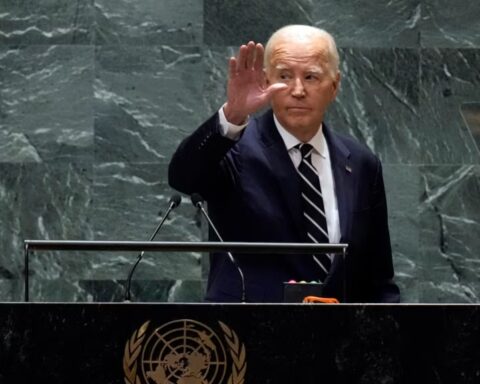Yemen’s population is in dire straits after nearly seven years of fighting between the Houthis, a predominately Shiite rebel group backed by Iran, and the internationally recognized government, whose allies are a Saudi Arabia–led coalition and, more recently, members of the separatist Southern Transitional Council.
The government has deadlocked with the Houthis, while armed groups such as al-Qaeda in the Arabian Peninsula and the self-proclaimed Islamic State terrorize regions outside the government’s control. The war has caused more than two hundred thousand deaths, mostly from indirect causes such as a lack of food and health services.
The January 2021 decision by the Donald J. Trump administration to designate the Houthis a terrorist group raised fears of additional reductions in aid that could be the tipping point for famine. Relief organizations are now hoping that an announced policy shift by President Joe Biden will ease the fighting and facilitate aid flows.
How much does Yemen rely on international aid?
Some 80 percent of Yemenis receive humanitarian assistance. However, the United Nations–led aid response was only half-funded in 2020, when donations slowed amid the coronavirus pandemic and countries including Saudi Arabia, the United Arab Emirates, and the United States slashed aid to Houthi-controlled territory over the rebels’ diversion of aid shipments. The Trump administration’s decision to brand the Houthis a foreign terrorist organization, which criminalized interaction with the rebels, has prompted concerns of further aid disruptions. Most of Yemen’s population lives in Houthi-controlled territory; this includes Yemen’s capital, Sanaa, and its busiest port, Hodeidah. The U.S. designation does allow exemptions for aid organizations, but not necessarily for the commercial entities they work with locally.
Will there be a famine?
Humanitarian groups warn that Yemen is “being starved” and that famine is imminent, mostly because of man-made causes and economic disruptions. For instance, the Saudi-led coalition’s prolonged blockade of Yemen has led to an increase in food prices. Though food is available, many cannot afford it, as the local currency is depreciating and an estimated half a million public servants, including doctors and teachers, have not received a salary in four years. UN Secretary-General Antonio Guterres warned that Yemen is in “imminent danger of the worst famine the world has seen for decades.” The United Nations predicts that the number of Yemenis experiencing famine-like conditions will reach forty-seven thousand by June, nearly triple that from December. Also concerning is a decaying oil tanker in the Red Sea, which former Secretary of State Mike Pompeo called a “ticking time bomb” and could cause an oil spill that would force Hodeidah’s port to close.
How much harm has COVID-19 done?
It’s difficult to determine how hard the virus has hit Yemen. As of December, just over two thousand cases and six hundred deaths had been reported, though this is likely an undercount due to a lack of testing capabilities. Additionally, the Houthis have not been transparent about the spread of the disease in their territory. But the country is no stranger to disease outbreaks: it is also suffering the largest cholera epidemic on record, with more than 230,000 suspected cases [PDF] last year alone. Half of the country’s health facilities are nonfunctioning because of the war; many have been destroyed by air strikes. Like most other poor countries, Yemen has yet to begin vaccinating its citizens against COVID-19.
The virus has also compounded the country’s economic woes. Prices have risen while remittance inflows slowed as COVID-19 restrictions have made it harder for Yemenis to obtain work abroad.
What has been the U.S. role in Yemen and how could it change under Biden?
The United States has backed the Saudi-led coalition since 2015, providing it with weaponry, training, and intelligence. It also targets terrorist groups in Yemen, which were the primary impetus for air raids conducted under Presidents Barack Obama and Trump. These strikes killed nearly nine thousand civilians, according to the Yemen Data Project.
U.S. involvement in the war is already changing under Biden, who announced this week that the country will no longer support the coalition’s offensive. Although the details of the policy shift are unclear, it is not expected to affect U.S. counterterrorism efforts against AQAP and the Islamic State in Yemen, and Biden affirmed that the United States will continue to help Saudi Arabia “defend its sovereignty and territorial integrity.” He signaled renewed support for diplomacy and appointed a new special envoy to Yemen, Tim Lenderking. Further changes could include a revocation of the terrorist designation, which is under review by Biden’s administration. Biden had already exempted aid groups and the United Nations from penalties stemming from the designation and approved transactions with the Houthis for one month.






